Writers & Artists
YEARBOOK
2018
Praise for the Yearbook
... the book which magically contains all other books ... an entrance ticket to the world you long for.
Fay Weldon
The best bit of help I can give is to buy a copy of the latest edition of the Writers & Artists Yearbook.
Susan Hill
The definitive resource.
Writing Magazine
... buy a copy of the current Writers & Artists Yearbook and get yourself out there.
Donal Ryan
Full of useful stuff.
J.K. Rowling
Everything you need to know about the business of being a writer.
Lawrence Norfolk
When youre looking to get published, its your Bible.
The Association of Illustrators
Every writer can remember her first copy of the Writers & Artists Yearbook.
Rose Tremain
The wealth of information ... is staggering.
The Times
I went out and bought myself a copy of the Writers & Artists Yearbook ... and talked to editors about ideas for stories. Pretty soon I found myself hired to do interviews and articles.
Neil Gaiman
The one-and-only, indispensable guide to the world of writing.
William Boyd
Writers & Artists
YEARBOOK
2018
ONE HUNDRED AND ELEVENTH EDITION
THE ESSENTIAL GUIDE TO THE MEDIA AND PUBLISHING INDUSTRIES
The perfect companion for writers of fiction and non-fiction, poets, playwrights, journalists, and commercial artists

The Editor welcomes readers to this edition of the Writers & Artists Yearbook
Welcome to the 2018 Writers & Artists Yearbook, which as in previous years provides up-to-date information and details of contacts across the media and publishing industries. These are interspersed with a rich collection of articles from authors, agents and other professionals. In an age when expertise is downplayed by some, the Yearbook is proud to be packed full of advice from experienced practitioners.
New experts this year include writers of fiction and non-fiction, all of whom excel in their fields. Kimberley Chambers charts her route to becoming a bestselling writer of thrillers (see Turning to crime, to find out who). Another veteran of the world of words, David Lodge, reminds us in his Foreword (page ix) of the need to seek support and advice from established and reliable sources.
Harry Bingham gives his thoughts on how authors can successfully self-publish their work (see Self-publishing online on .
Fledging writers will learn how to turn ideas into potential new commissions in Lifes a pitch on .
I hope you find much here to guide and inspire you in your writing and in your quest for publication.
Alysoun Owen
Editor
All articles, listings and other material in this Yearbook are reviewed and updated every year in consultation with the bodies, organisations, companies and individuals that we select for inclusion. To the best of our knowledge the websites, emails and other contact details are correct at the time of going to press.
Contents
The Writers & Artists website (www.writersandartists.co.uk) provides up-to-the-minute writing advice, blogs, competitions and the chance to share work with other writers. You can sign up to our regular newsletter; search our self-publishing comparison site (www.selfpubcompare.com); browse our Writing Calendar; and learn about the editorial services we offer. We also run courses, workshops and other events, including How to Hook an Agent lunches and one-day How to Get Published conferences.
Our listings service can be accessed at www.writersandartists.co.uk/listings. In addition to all the contacts in this edition of the Yearbook, subscribers are able to search hundreds of additional organisations and companies.
Whatever your needs, we hope that Writers & Artists resources, whether delivered in print, online or at our events, will provide you with the information, advice and inspiration you are looking for.
This edition of the Yearbook is dedicated to the memory of Rebecca Swift, a champion for new writers. Her article on Writing a synopsis starts on .
Short story competition
The annual Writers & Artists Yearbook Short Story Competition offers published and aspiring writers the chance to win a place on an Arvon residential writing course (worth 1,000). In addition, the winners story will be published on the Writers & Artists website.
To enter the competition, submit a short story (for adults) of no more than 2,000 words, on any theme by 13 February 2018 to competition@bloomsbury.com. For full details, terms and conditions, and to find out more about how to submit your entry, visit www.writersandartists.co.uk/competitions.
You might like to read Writing short stories on of this Yearbook.
 runs three historic writing houses in the UK, where published writers lead week-long residential courses. Covering a diverse range of genres, from poetry and fiction to screenwriting and comedy, Arvon courses have provided inspiration to thousands of people at all stages of their writing lives. You can find out more and book a course online at www.arvon.org.
runs three historic writing houses in the UK, where published writers lead week-long residential courses. Covering a diverse range of genres, from poetry and fiction to screenwriting and comedy, Arvon courses have provided inspiration to thousands of people at all stages of their writing lives. You can find out more and book a course online at www.arvon.org.
David Lodge, CBE, FRSL is an award-winning novelist, playwright and screenwriter, and the author of many works of literary criticism. A graduate and Honorary Fellow of University College London, he is Emeritus Professor of English Literature at the University of Birmingham. Davids first published novel was The Picturegoers (McGibbon & Kee 1960) and subsequent novels include Out of the Shelter (Macmillan 1970), his trilogy of campus novels, Changing Places (1975), Small World (1984) and Nice Work (1988), Therapy (1995), Thinks... (2001) and Author, Author: A Novel (2004), all published by Secker & Warburg. How Far Can You Go? won the Whitbread Book of the Year 1980 and Small World and Nice Work were both shortlisted for the Booker Prize for Fiction. An acclaimed screenwriter, David has adapted his own and other writers novels for television. His adaptation of Nice Work as a four-part BBC serial won the Royal Television Society Award for Best Drama serial and he was awarded a Silver Nymph for his screenplay at the Monte Carlo International Television Festival in 1990. His other adaptations include a six-part BBC serial of Charles Dickens Martin Chuzzlewit, first screened in 1993. Davids stage plays include The Writing Game and Home Truths. His latest novels are Deaf Sentence (Harvill Secker 2008), based on his own experience of deafness and A Man of Parts (H.G. Wells) (2011). Quite a Good Time To Be Born: A Memoir 193575 was published in 2015.
I am 82 years old at the time of writing this. I was about 16 when I conceived the ambition to be a writer, and 25 when my first novel was published in 1960. It was a very different world for aspiring writers from the one that they inhabit now. There were no personal computers with word-processing software that makes revision physically effortless; there was no internet, no Amazon for self-publishing and no Google for looking up things without moving from your desk; there were no creative writing courses in universities, very few literary prizes, and not very many literary agents. I did not think of acquiring an agent until after I had published my second novel. As I lived in London, I submitted the typescript of my first novel to publishers by hand to save the cost of postage, and the third one I tried accepted it. I got their addresses from the Writers & Artists Yearbook.

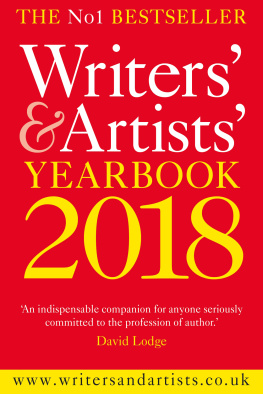
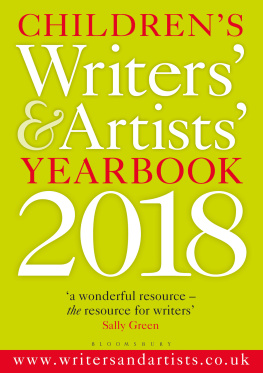
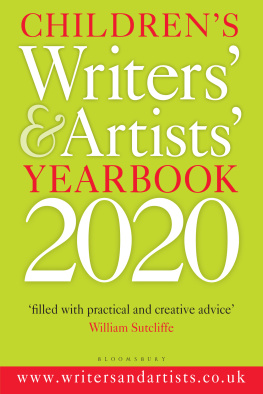
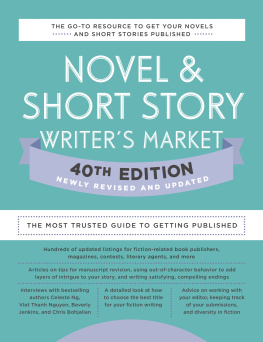
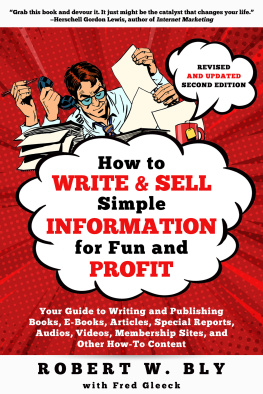
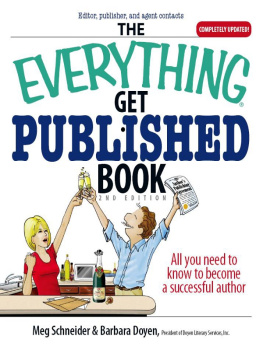
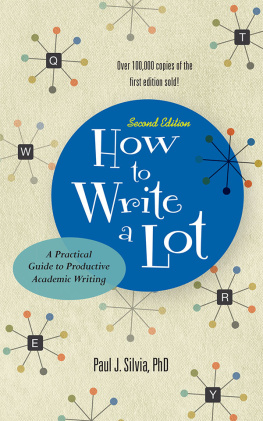
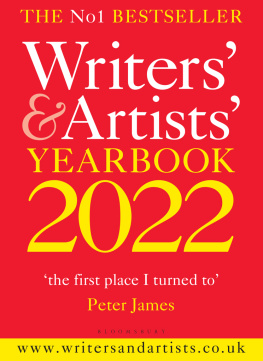
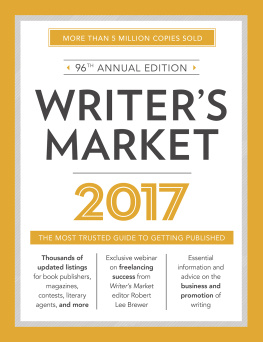
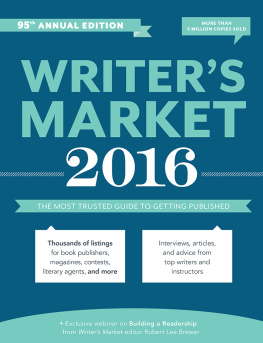
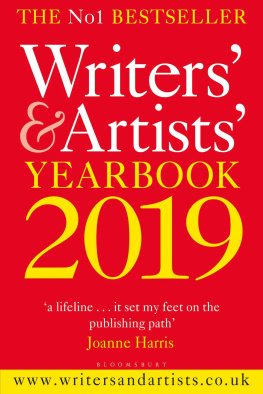

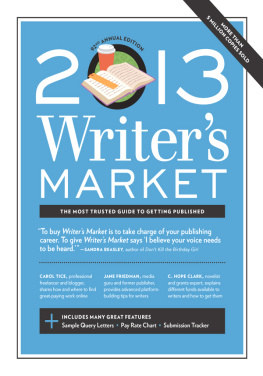


 runs three historic writing houses in the UK, where published writers lead week-long residential courses. Covering a diverse range of genres, from poetry and fiction to screenwriting and comedy, Arvon courses have provided inspiration to thousands of people at all stages of their writing lives. You can find out more and book a course online at www.arvon.org.
runs three historic writing houses in the UK, where published writers lead week-long residential courses. Covering a diverse range of genres, from poetry and fiction to screenwriting and comedy, Arvon courses have provided inspiration to thousands of people at all stages of their writing lives. You can find out more and book a course online at www.arvon.org.